For All Mankind returns for more highly addictive sci-fi soap spectacle
The alternate history space drama sets its sights on two distant destinations – Mars and the 1990s.
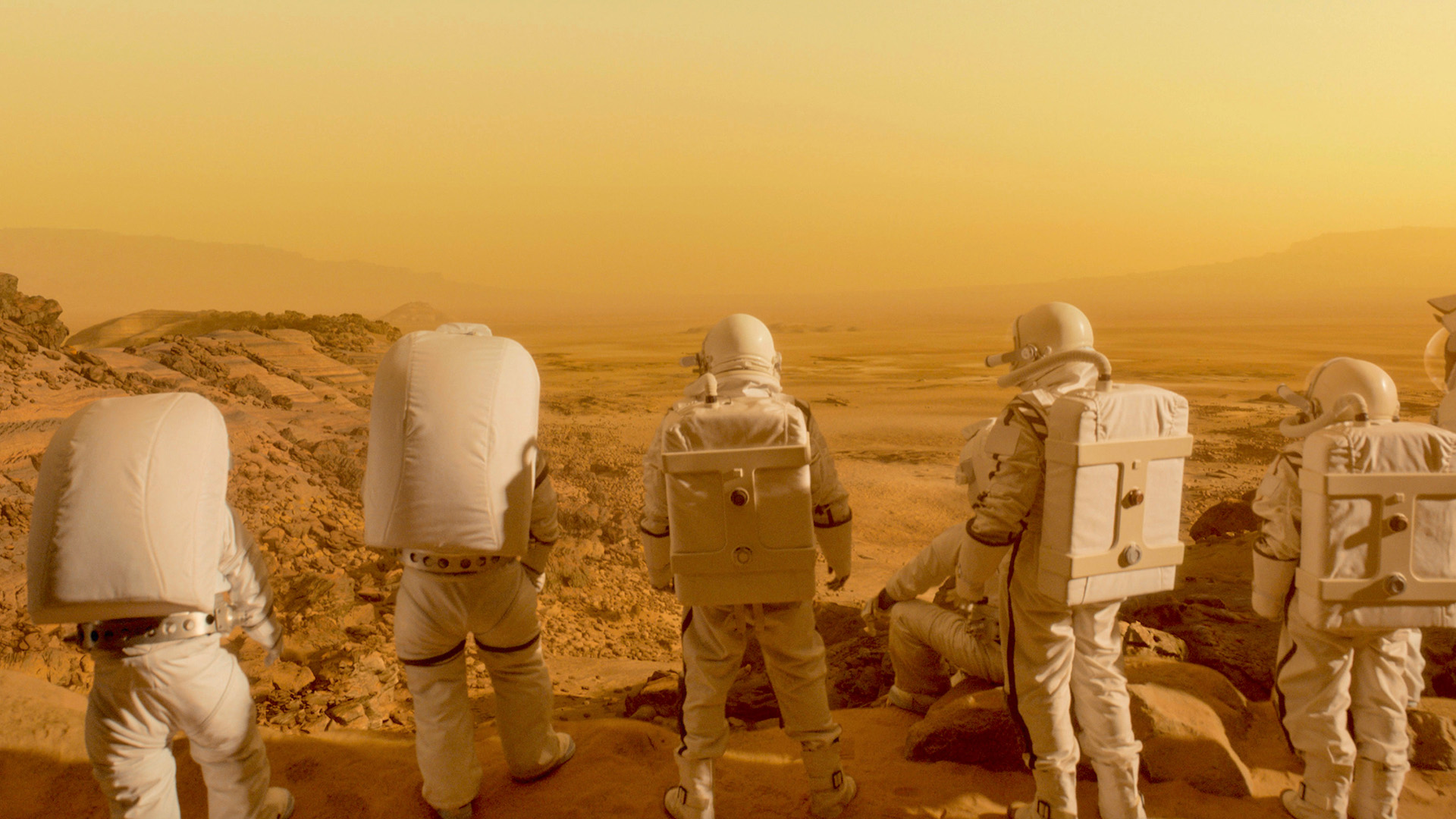
Season three of Apple TV+’s alternate-history drama For All Mankind takes the concept to the ’90s with a new goal in the space race: Mars. Adam Fresco remains under the show’s hypnotic spell, even with (because of?) the soap opera sketchiness of it all.
Review contains some spoilers for seasons one, two and three.
For the uninitiated, Apple TV+’s For All Mankind is a hard science fiction, alternate history drama. From an alternative 1969, in which Russia rather than North America put the first person on the Moon, to a world in which the Space Shuttle Challenger disaster of 1986 never happened, NASA’s space programme continues unabated in the show—as does the Cold War. In this timeline, rather than the Berlin Wall coming down in 1989 and symbolising the end of the Soviet Union, the USSR continued on, and Russia versus US rivalry went from cool to red hot in the race for space. Seasons one and two saw the superpowers establish a base on the Moon, and arm the lunar surface with nuclear weapons. Now, in the third season, the race is on to be the first to land on Mars.
Three seasons in, For All Mankind remains a bizarre blend of optimism, hope, and historical correction that feels worthy of Quentin Tarantino’s revisionism in the final reels of Inglourious Basterds and Once Upon A Time In Hollywood. It takes a few episodes to wrap your head around the show’s intentions. At first, you might be forgiven for thinking of For All Mankind as a comedy, taking a satirical swipe at 1970s television soap-operatic dramas, from the wonky sets to the zealous acting of characters who seem more like idealised versions of scientists, astronauts, engineers, astrophysicists, politicians, and generals than real flesh and blood people.
But the more I watched, the more I fell under the show’s hypnotic spell. It’s a throwback to television dramas of yesteryear that found in science fiction a way to right the wrongs of modern America, from the all-embracing humanity of the original Star Trek and its United Nations-in-space morality, to the pioneering heroics of Space 1999, and even the puppeteered morals of Thunderbirds—not that you should expect anything less than top-drawer special effects and awe-inspiring space spectacle here.
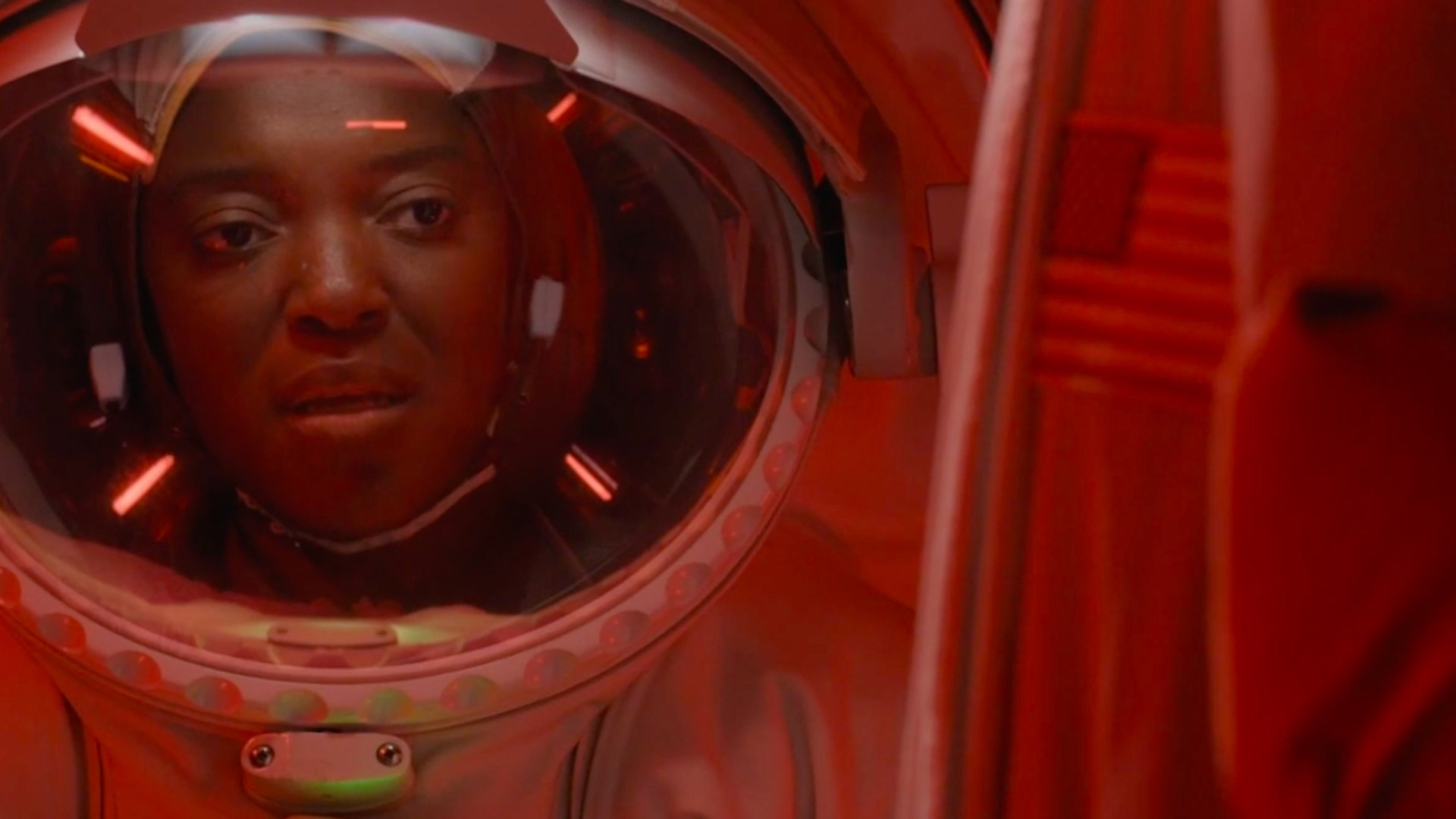
It should come as no surprise then, that behind the hope-in-humanity message is showrunner Ronald D. Moore, the science-fiction screenwriter and producer who engineered Star Trek: Deep Space Nine, and so magnificently reimagined Battlestar Galactica for television from 2004 to 2009. No stranger to tackling today’s issues, by setting them in the future or far off in space, Moore’s For All Mankind takes the next step, by rewriting modern history. The third season kicks off with a brand new title sequence, which playfully evokes the show’s alt-history spin, and even includes news footage of The Beatles reunion tour selling out stadiums, in a world in which John Lennon was never assassinated.
It’s a fun touch that sets the tone for a show firmly centred on its “What If?” conceit. What if the pursuit of science and exploration of space was run by people keen to show the world how humanity might work together to achieve for all, rather than continue unabated in a cycle of violent wars, disastrous consumption, and ecological ruin? What if intellectuals guided development, choosing rationalism and scientific pursuit over greed and exploitation? What if sincerity and optimism reigned over spin and world-weary cynicism?
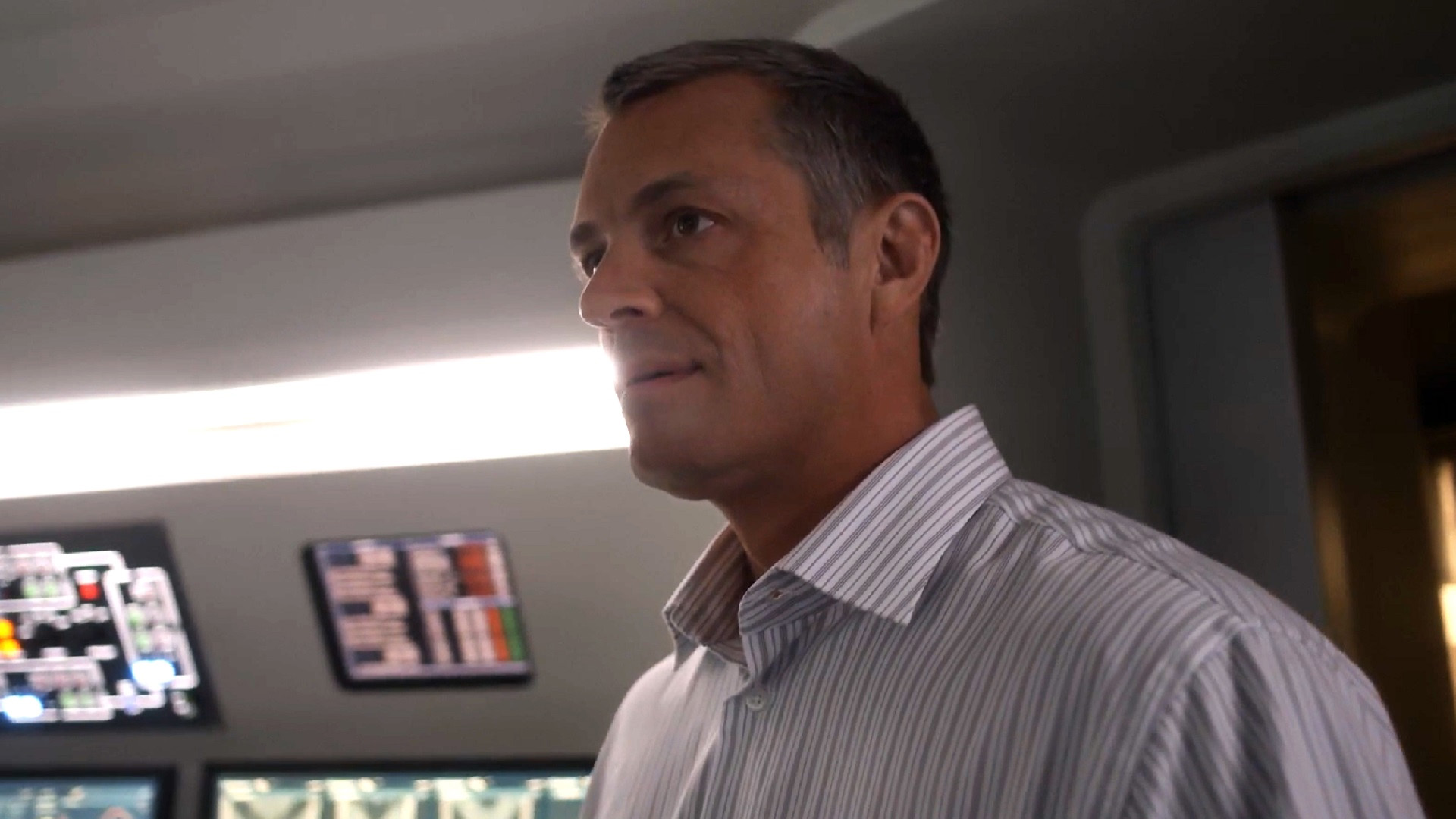
The opening episodes of this third season quickly reintroduce viewers to the surviving central characters. Former astronaut and NASA manager, Edward Baldwin (Joel Kinnaman), is older now, or so his unconvincing grey-streaked hair insists. He’s so old, in fact, that his (deceased) son’s best friend is not only an astronaut, but about to get married. It’s the mid-1990s, but this being For All Mankind, the wedding isn’t taking place in a local church, but on the first space station designed specifically for off-world tourism.
Of course, the happy couple have barely uttered “I do”, before everything goes Poseidon Adventure-style disaster movie wrong. North Korean space junk, from an exploded rocket, whacks into the space station, with disastrous results. Disastrous not just for the space tourists, but for the actors playing them too, as they are reduced to plodding about wobbly sets as if gravity has made their limbs twice as heavy. The spectacle of inebriated wedding guests now made doubly drunk by having to wade around as though underwater makes for unintended comedy on a par with the original Star Trek crew wobbling side-to-side, pretending the ship’s been hit during a Klingon attack.
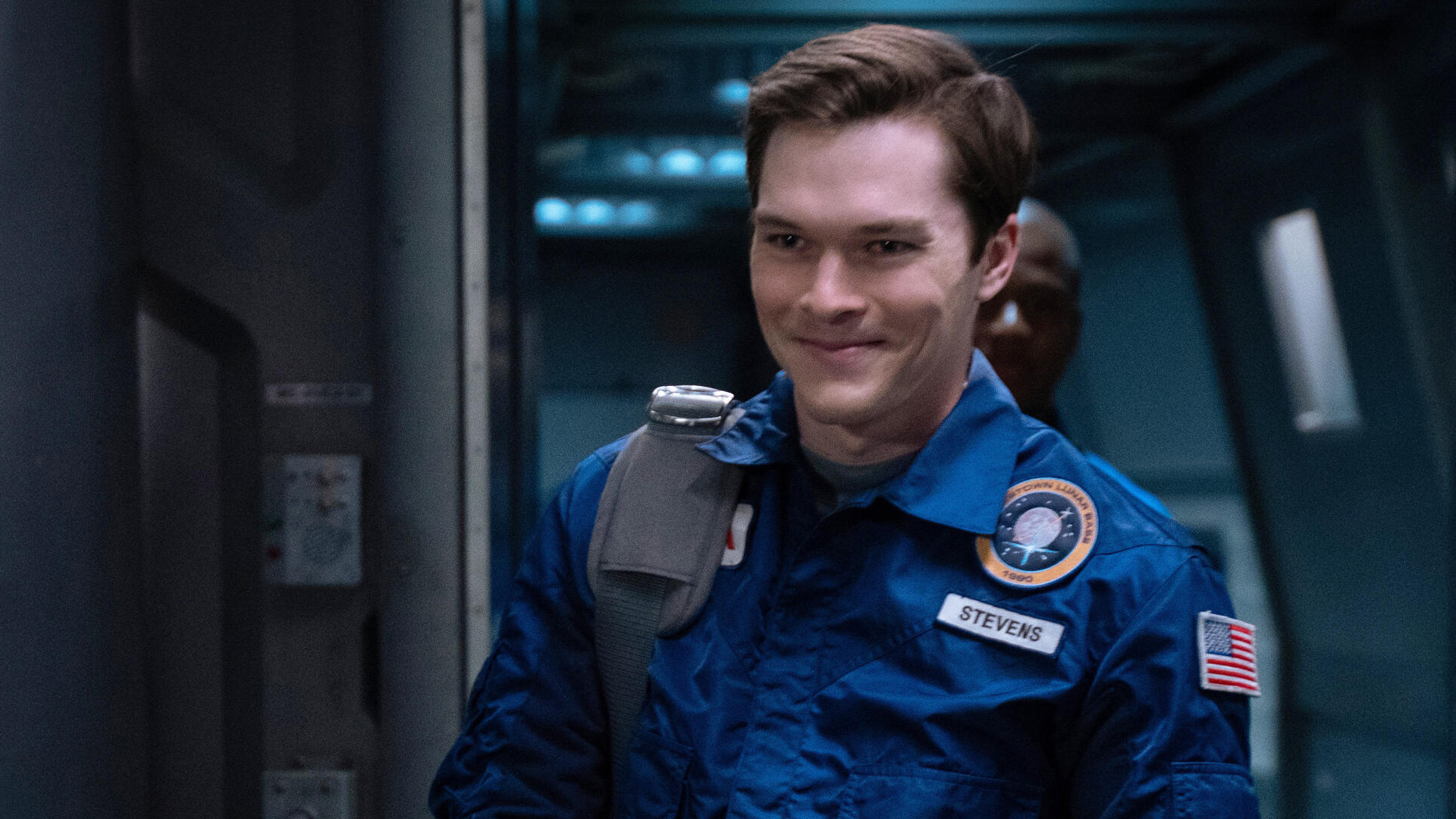
From the 1990s hair to the bland, knock-off Stanley Kubrick 2001: A Space Odyssey space station set design, to the straight-faced heroics, speechifying, and often oddly retro special effects, season three seems to embrace the aesthetics of late 1980s and early 1990s television in a knowing nod to its idealised roots. Offering the satisfying spectacle of heroes doing their best and being all they can be, sure, the morals are simplistic, but the show retains a commitment to tackling issues from racism and homophobia to sexism and nationalism head-on, in a way few mainstream television dramas of yesteryear ever dreamed possible.
Despite the star power of Suicide Squad’s Joel Kinnaman in a leading role, the drama continues to follow a pretty large ensemble cast and keeps viewers guessing as to their fate, due to a track record of killing off those you come to care for most. It’s a ploy that pays off, because as dangers mount, you’re never too sure just who might end up spinning off into the icy blackness of space. But there’s a thin line between dramatic tension and outright camp. Ultimately, my take on the show is that I can’t for the life of me work out whether it’s a serious-minded drama, unaware of how funny it is, or a high camp comedy poking fun at its own soap-opera-in-space pretensions of political and moral grandeur. Maybe it’s this precarious balance between brilliant and bonkers that has kept me hooked for three seasons.
It’s the same reason I loved the original Star Trek as a kid, and love it still as an adult, only now with a more knowing grin. Captain Kirk may have been my hero when I was five, but now I’m all grown up, my relationship with William Shatner is far more ironic.
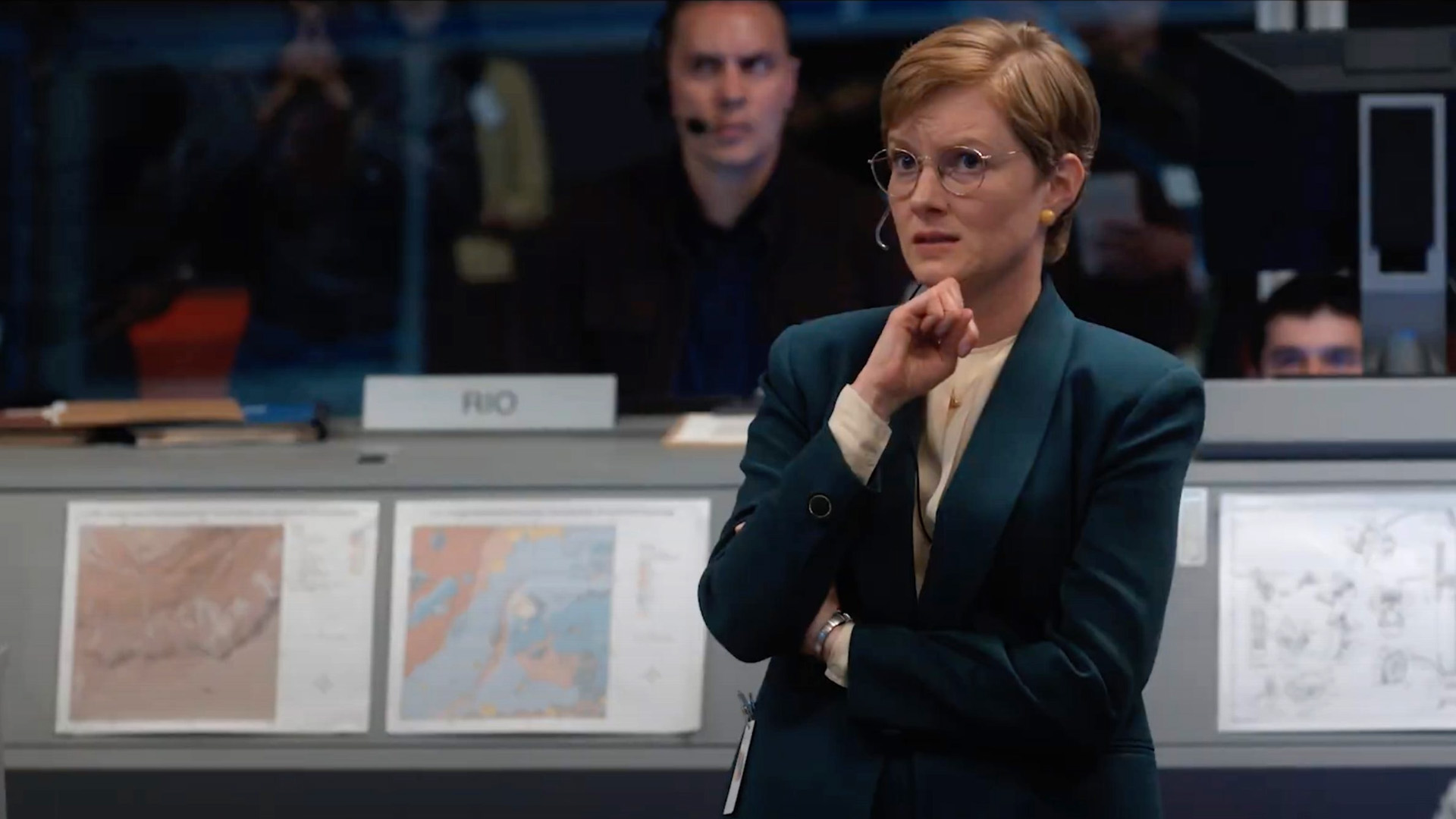
Amongst the cast members making welcome returns, beneath way too-much wrinkle prosthetics, grey hair-dye, and aging make-up for my HD TV to bear, are Shantel VanSanten as Karen, Ed’s former wife, and Sonya Walger as Molly Cobb, the tough-as-nails, dope-smoking former astronaut. Molly may now be a NASA boss herself, but you just know she’s still a rebel at heart because she smokes cigarettes in the newly smoke-free NASA office building. Back too is Ellen Wilson (Jodi Balfour), who continues her political ascent. However, even in the reasonably enlightened historical timeline of For All Mankind, the former astronaut’s closeted homosexuality threatens her approval ratings. Wrenn Schmidt is convincing as ever as the now Director of NASA, Margo Madison, a woman so committed to her job that she sleeps in a room adjacent to her office.
Is Margo’s ongoing secret relationship with the Soviet space program’s Sergei Nikulov (Piotr Adamczyk) a strength or a weakness set to be exploited by the clashing Cold War rivalry between Russia and the United States? You’ll have to watch to find out, but it’s a soapy side plot that continues to entertain until, as with all the subplots in For All Mankind, you say it out loud and realize how bananas it all really is. From their surreptitious chats in telephone boxes (where the US is always warm, and Russia frozen cold), to their unbelievably obvious “secret” code, (“your new LP record is ready”), it’s little surprise that Margo and Sergei have eluded the CIA and KGB about as effectively as elephants wearing baseball caps in a bid to dodge paying fares on a bus.

For all its quirks, For All Mankind has an earnestness and positivity that speaks to the cynic in me. “Yes, the world’s a mess, but never forget the greatness humanity might aspire to” it seems to say in every together-we-can-do-this monologue delivered straight-faced by its heroes. It’s hard not to fault the show for its wide-eyed optimism, but its historical rewriting remains a fascinating exercise in teasing out what could have been. Whilst, like the similarly alt-history series The Man In The High Castle, the show often moves at a slow pace, it is always an engaging, entertaining, and often bizarre glimpse into the multiverse of possible roads not travelled in recent history.
Today, with every tech billionaire set to launch to Mars, and China joining America and Europe in the renewed race for space, there’s something incredibly relevant in For All Mankind reimagining humanity’s quest for the stars—especially with private enterprise joining the previously nationalist space race. With each hour-long episode both a call back to old-fashioned television dramas and a science fiction-styled mirror of modern times, the show is that rarest of dramatic treats—something remarkably, off-the-wall original and truly one of a kind.

In portraying an imagined mid-1990s race to reach the red planet, the drama builds beyond mere science fiction, bounding into modern-day reality as it imagines what the future holds. Will the exploration of a new planet build towards a future of global cooperation, or continue to divide us as differing factions fight for dominance of the final frontier offered by space?
From its cliff-hanger endings, cheese-laden speeches, unquenchable optimism, and soap opera stylings, to its sci-fi flash and unexpected character kills, it should come with a “Beware: This Series Can be Highly Addictive” warning on the label. Three seasons in and, like a Dan Brown novel, I can’t put it down. For all its far-out fantasising, romantic optimism, hope in science, and love-conquers-all humanity, when you boil it right down to its essence, For All Mankind is highly entertaining TV. Boldly going where no one has gone before, it offers a highly addictive dose of sci-fi soap that may either be wildly satirical, or deeply sincere, or possibly both. Either way, For All Mankind is ultimately highly addictive bingeworthy TV, offering drama, dialogue, plotting, characters, and hairstyles that really are out of this world.























